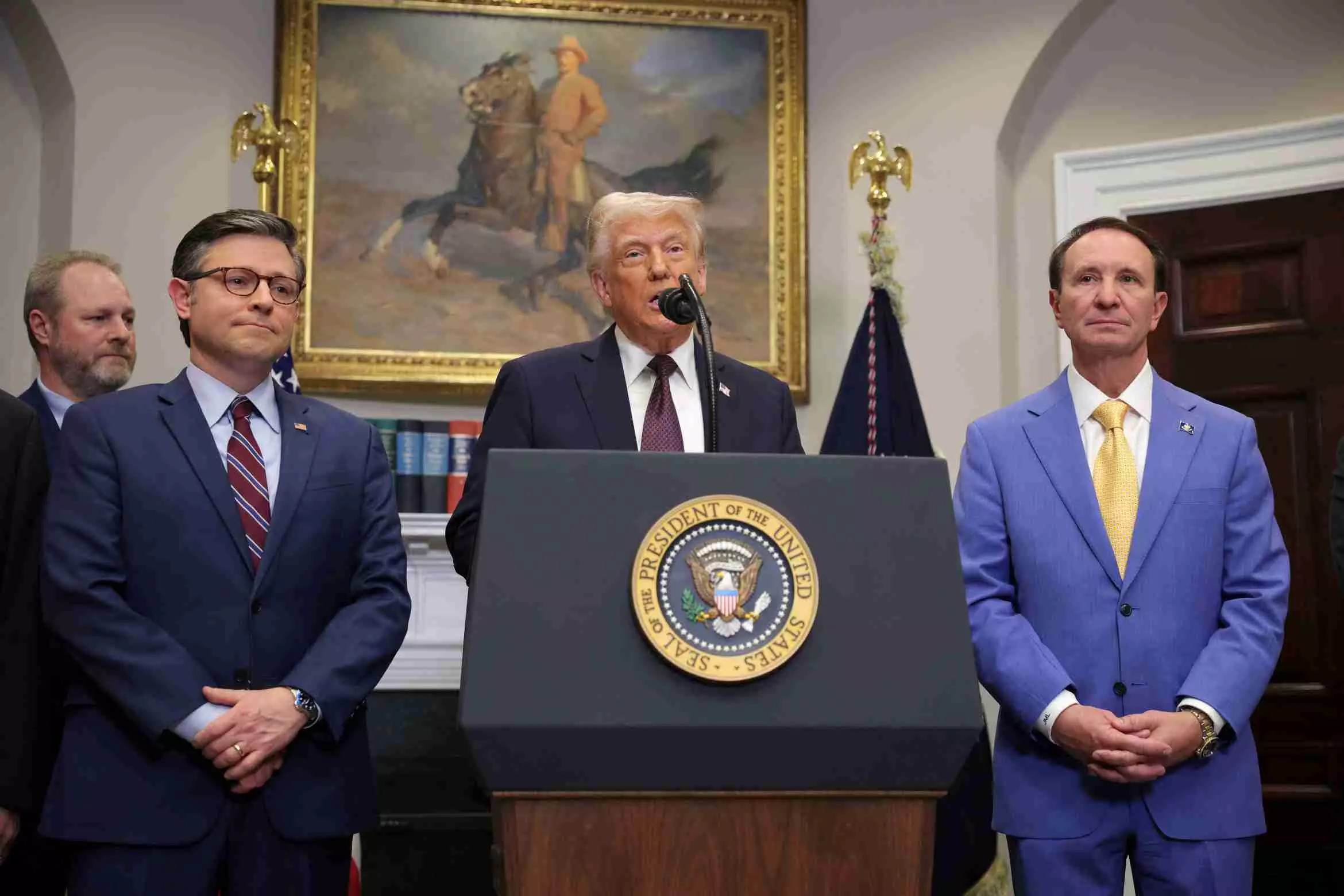
Trump’s order to overhaul US elections likely to face legal hurdles, backlash
The sweeping executive order mandates citizenship proof to vote, limits mail-in ballots, cut funds to non-compliant states, sparking criticism and legal threats

US President Donald Trump on Tuesday (March 26) signed a sweeping executive order aimed at overhauling the US election system.
The order mandates documentary proof of citizenship to register to vote in federal elections and that all ballots to be received by Election Day.
The order says the US has failed “to enforce basic and necessary election protections” and calls on states to work with federal agencies to share voter lists and prosecute election crimes.
It also threatens to withhold federal funding from states that fail to comply.
The order directs federal agencies like the Department of Homeland Security and the Social Security Administration to share data with state election officials to identify non-citizens on voter rolls. It also bars voting systems from using QR codes or barcodes in ballot counting and proposes a crackdown on foreign nationals contributing or donating to the US elections.
It also says the attorney general should “prioritise enforcement of federal election integrity laws” in states that don't share information about suspected election crimes with the federal government.
Also read: Trump orders sweeping overhaul of US polls; citizenship proof mandatory
Legal pushback
Trump's order is likely to face legal challenges, as the US Constitution grants authority over elections to the states. While Congress has the power to regulate voting, the Constitution makes clear that states have primary authority to set the “times, places and manner” for elections.
The order's documentary proof of citizenship requirement signals that the president is not waiting for congressional Republicans to pass their long-anticipated Safeguard American Voter Eligibility Act, or SAVE Act, which has aimed to do the same thing.
Republicans have defended that measure as necessary to restore public confidence in elections. Voting in federal elections by noncitizens is already illegal and can result in felony charges and deportation.
Voting rights advocates warn that the new rules could disenfranchise millions of eligible voters.
A 2023 report by the Brennan Center for Justice estimates that 21.3 million voting-age US citizens lack immediate access to documentary proof of citizenship. Additional concerns include potential issues for married women who have changed their names and may face difficulties registering due to mismatches with birth certificates.
Such hiccups happened in recent town elections in New Hampshire, which has a new state law requiring proof of citizenship to register to vote.
Also read: Federal judge pauses Trump move of banning transgender people from military service
Will states comply or resist?
Currently, 18 states and Puerto Rico allow mailed ballots received after Election Day to be counted, provided they are postmarked on or before that date.
California, in particular, permits ballots to be accepted up to seven days post-election. Due to this, California's vote counts often extend for weeks in pursuit of accuracy.
In Georgia, a key battleground state, most voters use touchscreen voting machines that print paper ballots with QR codes, which are scanned to tally votes. The executive order’s ban on QR codes could impact how votes are counted in Georgia and other states that use similar technology, though details remain unclear.
Also read: Trump’s new social media policy spells trouble for Indian green card holders
Mixed political reactions
Republicans have praised the executive order as a necessary step to restore trust in elections.
Georgia’s Secretary of State Brad Raffensperger called it a “great first step for election integrity reform nationwide,” while Rep. Bryan Steil said it was a “welcome action to secure our elections and prevent foreign influence.” Trump ally Mike Lindell hailed it as a fix for the country’s “sick elections.”
Democrats, however, remain sharply critical. Rep. Joe Morelle and Jena Griswold reiterated that the order is unconstitutional and could suppress legitimate votes. They slammed the order as “unlawful”, “immoral,” “illegal,” and an overreach of federal authority.
At least one Democratic attorney on Tuesday threatened legal action. Marc Elias, who has been the subject of Trump's ire, said in a social media post: “This will not stand. We will sue.”
The executive branch does have some authority over elections, said Justin Levitt, a constitutional law expert and former White House senior policy adviser during the Biden administration.
The move also rescinds a 2021 Biden-era executive order encouraging voter registration via federal agencies, which Republicans had previously criticised as federal overreach.
Trump hinted that more election-related actions may follow in the coming weeks, signalling a continued push to reshape voting rules ahead of the 2024 elections.

